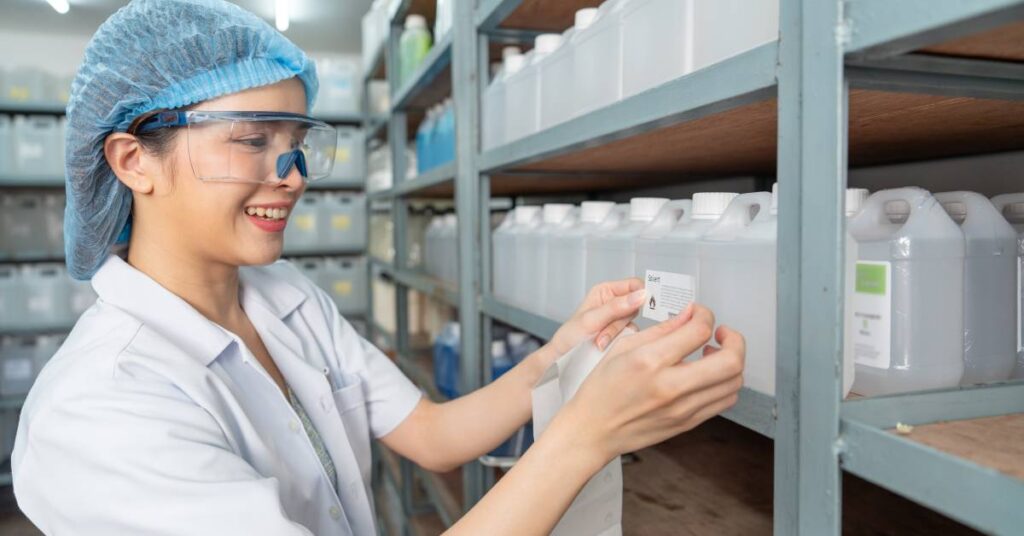The pharmaceutical industry is notoriously resource-intensive, and solvents play a major role in drug manufacturing processes. However, disposing of these chemicals after a single use is both environmentally damaging and economically inefficient. Here are excellent reasons why pharmaceutical companies should recycle solvents and make it a standard practice.
Resource Conservation
Solvent recycling contributes to resource conservation. Companies can reduce the demand for new raw materials by recycling, leading to a more sustainable supply chain that ensures the efficient and responsible use of natural resources.
The practice of recycling solvents supports a circular economy where materials undergo continual reuse instead of being discarded. This active approach benefits the environment and actively promotes long-term sustainability for the pharmaceutical industry.
Enhanced Research and Development
Solvent recovery systems support innovative research and development (R&D). By providing a steady supply of high-purity solvents, scientists can conduct experiments and develop new drugs without interruption.
The ability to reuse solvents maintains consistent quality, which is essential for reliable experimental outcomes. For example, consistent solvents control variables during drug development, ensuring the results come from the experiment itself and not fluctuations in solvent quality. Consistency accelerates R&D and brings new medications to the market.
Cost Savings
Recycling solvents can lead to significant cost reductions. Solvents are major expenses in pharmaceutical manufacturing, and reusing them can dramatically cut costs. By utilizing solvent recovery systems, pharmaceutical companies can reclaim and purify solvents to reuse them in the production process. This lowers raw material costs and decreases disposal expenses.
Cost-Savings Example
Consider a mid-sized pharmaceutical manufacturer that spends approximately $500,000 annually on solvents. Through recycling, the company could reclaim up to 90 percent of its solvents, reducing the annual solvent expenditure to $50,000. This $450,000 in savings could fund new drug development or improve existing processes!
Environmental Responsibility
Sustainability is a major focus for modern pharmaceutical companies. Recycling solvents helps to reduce the environmental footprint of manufacturing processes. By reclaiming and reusing solvents, companies can decrease their volume of hazardous waste. As a result, they will decrease their impact on landfills and the environment. This practice supports corporate social responsibility (CSR) initiatives and enhances the company’s reputation as an eco-friendly organization.

Improved Operational Efficiency
Solvent recycling machines can improve operational efficiency by ensuring a steady supply of solvents. This can streamline production and reduce downtime caused by waiting for new chemical deliveries. Additionally, modern recovery systems boast high automation, reducing the need for manual intervention and enabling staff to focus on other tasks requiring human input.
Technological Integration
Advanced solvent recovery systems can do the following:
- Integrate with existing manufacturing processes
- Providing real-time monitoring and control
- Optimizes solvent usage
- Reduces operational costs
- Making the entire manufacturing process more efficient
Reduced Supply Chain Dependence
The pharmaceutical industry is vulnerable to supply chain disruptions, which can lead to delays and increased costs. By recycling solvents, companies can reduce their dependence on external suppliers and mitigate the risks of supply chain volatility. This practice not only ensures a more stable supply of essential materials but also enhances inventory management by reducing stockpiling needs.
Moreover, reusing solvents helps companies maintain production continuity, even during global supply chain disruptions or shortages. It minimizes the impact of fluctuating solvent prices and availability, providing a buffer against market instability.
This strategic approach allows pharmaceutical firms to forecast and manage procurement budgets while strengthening their supply chain resilience. Additionally, relying less on external suppliers gives companies greater control over solvent quality and consistency, ensuring they meet manufacturing standards.
Competitive Advantage
Another reason pharmaceutical companies should recycle solvents is to gain a competitive edge over other businesses. Companies prioritizing sustainability and cost-efficiency are more attractive to investors, partners, and consumers. Demonstrating a commitment to recycling solvents shows environmental stewardship and highlights the company’s dedication to innovation and operational excellence.
Additionally, showcasing successful recycling initiatives can improve a business’s brand reputation and marketability. Consumers prefer to engage with businesses that exhibit strong environmental ethics, giving such companies a distinct market edge. A good public perception can foster customer loyalty and attract top talent eager to work for environmentally responsible organizations.
Regulatory Compliance
Pharmaceutical companies must adhere to strict environmental regulations. Non-compliance results in hefty fines and legal repercussions. For example, the Resource Conservation and Recovery Act (RCRA) in the United States mandates the management and recycling of hazardous waste.
Solvent recovery systems help companies meet regulatory requirements by safely managing and recycling solvents, ensuring compliance with local and international environmental standards.
Employee Safety
Handling and disposing of large volumes of solvents can pose significant safety risks to handlers. By recycling solvents on-site, pharmaceutical companies can reduce the frequency and volume of solvent transport and minimize the risk of spills, leaks, and exposure to hazardous chemicals.
Safety Protocols
Implementing solvent recovery systems can also lead to the adoption of strict safety protocols and procedures. These protocols protect employees and ensure the organization complies with occupational health and safety regulations, reducing the risk of workplace accidents and liabilities (e.g., fines and legal actions).

How Solvent Recycling Works in the Pharmaceutical Industry
Solvent recycling machines specialize in recovering and purifying solvents. Here’s an overview of how the equipment works in the pharmaceutical industry:
- Gather used solvents from production processes and store them in a collection tank within the machine.
- Purify the solvents to remove solid particles and separate phases (if necessary).
- Heat the pre-treated solvent mixture, causing the more volatile components to vaporize. Then, pass the vapor through a distillation column, where it separates based on boiling points. Lastly, condense the vapor back into liquid.
- Apply additional purification steps to the distilled solvent, such as adsorption or chemical treatment, to achieve the desired purity levels.
- Test samples of the purified solvent to ensure they meet the standards for reuse in pharmaceutical manufacturing.
- Store purified solvents in clean solvent tanks and reintegrate them into the manufacturing process. It’s also important to maintain documentation and ensure regulatory compliance.
Where To Get a Solvent Recycling Machine
If you’re looking to implement sustainable practices within your pharmaceutical company, investing in a solvent recycling machine is a smart move. At Solvent Waste Management, we specialize in providing innovative and eco-friendly solutions for hazardous waste management.
With our cutting-edge technology, you can reclaim and reuse solvents, significantly reducing disposal costs and the need for new materials. To learn more about how our machines can benefit your operations, please contact us today!

